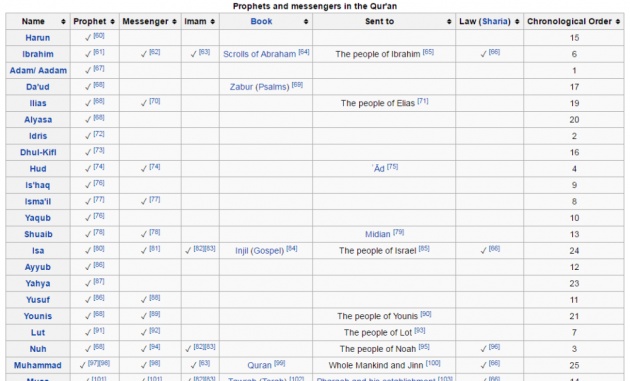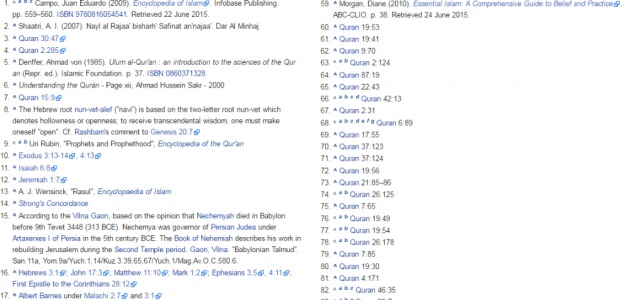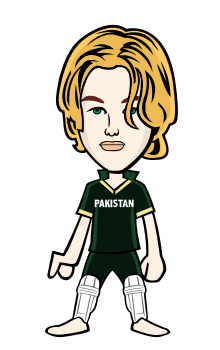In Arabic and Hebrew,[8] the term nabī (Arabic plural form:anbiyāʼ) means "prophet". Forms of this noun occur 75 times in the Quran. The term nubuwwah (meaning "prophethood") occurs five times in the Quran. The terms rasūl (plural: rusul) and mursal (plural: mursalūn) denote "messenger" or "apostle" and occur more than 300 times. The term for a prophetic "message", risālah (plural: risālāt), appears in the Quran in ten instances.[9] The Syriac form of rasūl Allāh (literally: "messenger of God"), s̲h̲eliḥeh d-allāhā, occurs frequently in the apocryphal Acts of St. Thomas. The corresponding verb for s̲h̲eliḥeh—s̲h̲alaḥ, occurs in connection with the prophets in the Hebrew Bible.[10][11][12][13] The words "prophet" (Arabic: نبي nabī) and "messenger" (Arabic: رسول rasūl) appear several times in the Old Testament and the New Testament.
Characteristics
In Muslim belief, every Islamic prophet preached Islam. The beliefs of charity, prayer, pilgrimage, worship of God and fasting are believed to have been taught by every prophet who has ever lived.[18] The Quran itself calls Islam the "religion of Abraham" (Ibrahim)[19] and refers to Jacob (Yaqub) and the Twelve Tribes of Israel as being Muslim.[20] The Quran says: The same religion has He established for you as that which He enjoined on Noah—the which We have sent by inspiration to thee—and that which We enjoined on Abraham, Moses, and Jesus: Namely, that ye should remain steadfast in religion, and make no divisions therein:... — Quran, sura 42 (Ash-Shura), ayah 13[21]
Status
Numbers
Female prophets
Holy books





